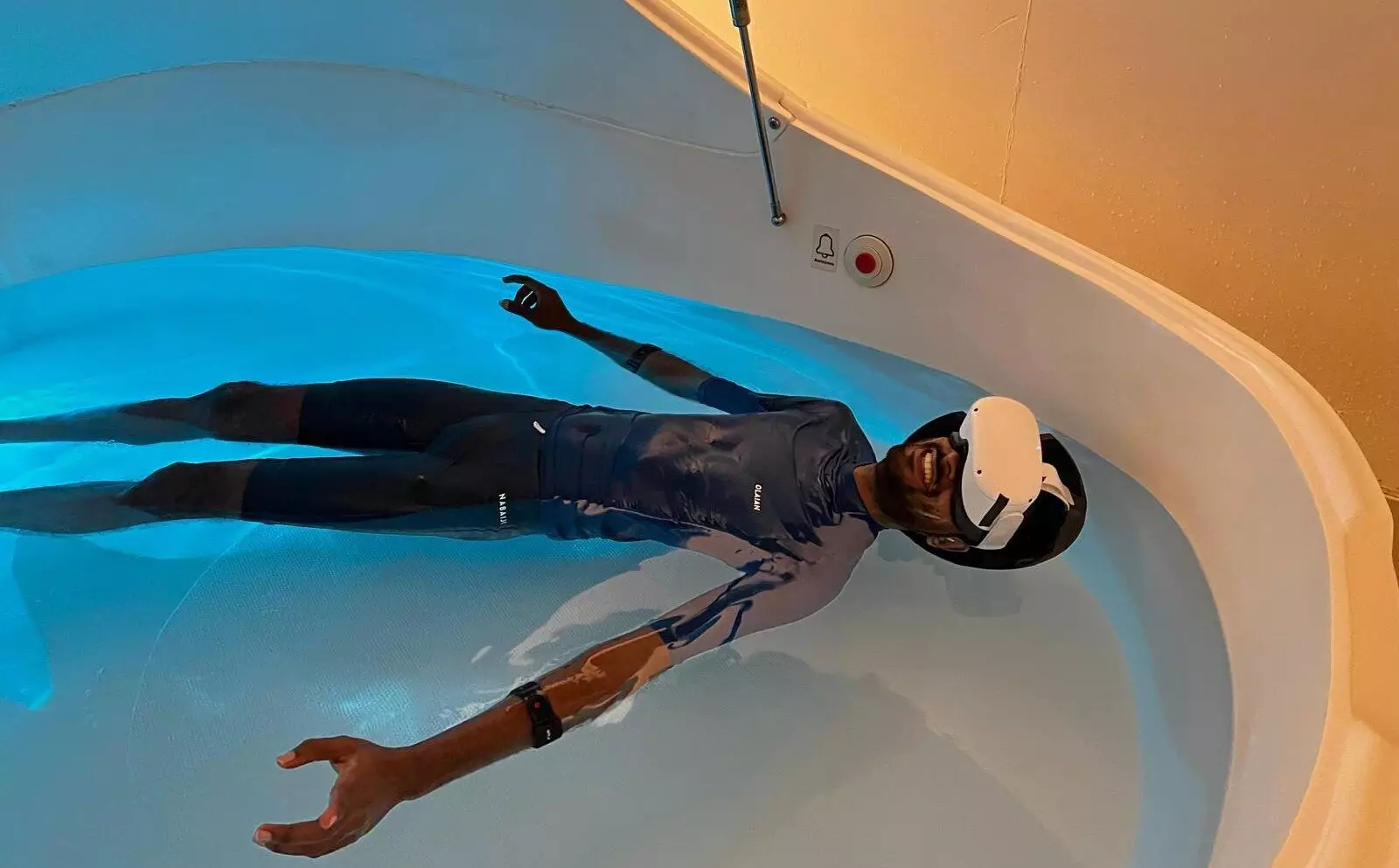Aquaphobia, the intense fear of water, affects numerous individuals, impeding their ability to enjoy various recreational activities and even leading to life-altering consequences such as the avoidance of swimming pools, lakes, and oceans. Researchers often explore novel methods to alleviate such anxieties, particularly through the integration of technology and psychology. Recently, Monash University emerged as a pioneer in this realm with an innovative approach using an extended reality (XR) system that merges immersive virtual environments with the calming effects of floatation tanks. This unique methodology is designed, not merely as a treatment, but as a playful and engaging intervention that redefines therapy for those challenged by aquaphobia.
The Extended Reality System: An Overview
At the heart of this research, led by Ph.D. candidate Maria Montoya and her team at the Exertion Games Lab, lies the application of a water-based virtual reality (VR) landscape integrated with floatation tanks. This immersive system does not just serve as an escape but instead acts as a structured therapeutic mechanism designed for exposure therapy. Participants float in a controlled environment, where a virtual reality headset immerses them in an auditory and visual water-themed setting, creating an illusionary experience that distracts from their fears.
What sets this XR system apart is how it leverages biometric feedback. Participants’ heart rates, breathing patterns, and slight head movements are monitored and utilized to influence interactions within the virtual space, aiding in a personalized and responsive therapeutic experience. This innovative use of technology allows for a more organic and intuitively interactive form of therapy, greatly enhancing participant engagement.
The researchers posit that the playful nature of their XR experience may play a crucial role in reducing anxiety related to water. Rather than expecting participants to confront their fears abruptly, the extended reality system introduces them to a progressive journey through a series of virtual water environments, guided by a character known as a “water spirit.” This character operates as a supportive companion throughout the immersive experience, offering verbal reassurance and encouragement that seeks to alleviate fear while simultaneously promoting enjoyment.
Such a framework closely mirrors traditional exposure therapy, which involves gradual desensitization to a feared stimulus. However, in this scenario, the playful narrative and interactive elements keep participants engaged and entertained, while also promoting a sense of safety as they navigate their fears in a highly controlled setting. By encouraging participants to partake for longer durations, the XR system utilizes a rewarding approach to ensure that treatment feels less like a chore and more like an engaging experience.
The effectiveness of this novel approach was substantiated through a study involving twelve individuals who self-identified with aquaphobia. Participants undertook a six-step process that included both baseline assessments of their heart rates outside and within the floatation tank, originally devoid of technology, compared to experiences augmented with the XR system. Results indicated a marked decrease in anxiety levels as demonstrated through heart rate variability metrics. Professor Florian “Floyd” Mueller, co-author and director of the Exertion Games Lab, underscored how the XR system actively contributed to a more relaxed atmosphere for the participants.
The implications of this research extend beyond mere academic interest. By harnessing the immersive capabilities of XR technology, the researchers underscore the potential for integrating modern digital solutions into therapeutic practices. Should this innovative approach be scaled and refined, it could offer a groundbreaking alternative for countless individuals burdened by water-related fears.
As we venture further into a digital era, the intersection of technology and therapeutic techniques will likely yield remarkable developments in the realm of mental health. Monash University’s developments in XR for addressing aquaphobia showcase a particularly promising avenue that combines playfulness, interactivity, and personalization to create a compelling therapeutic model. This innovation not only provides a fresh perspective on how we tackle fears but also sets a precedent for similar approaches in other domains of mental health treatment, spearheading a movement towards more engaging and effective forms of therapy.


Leave a Reply